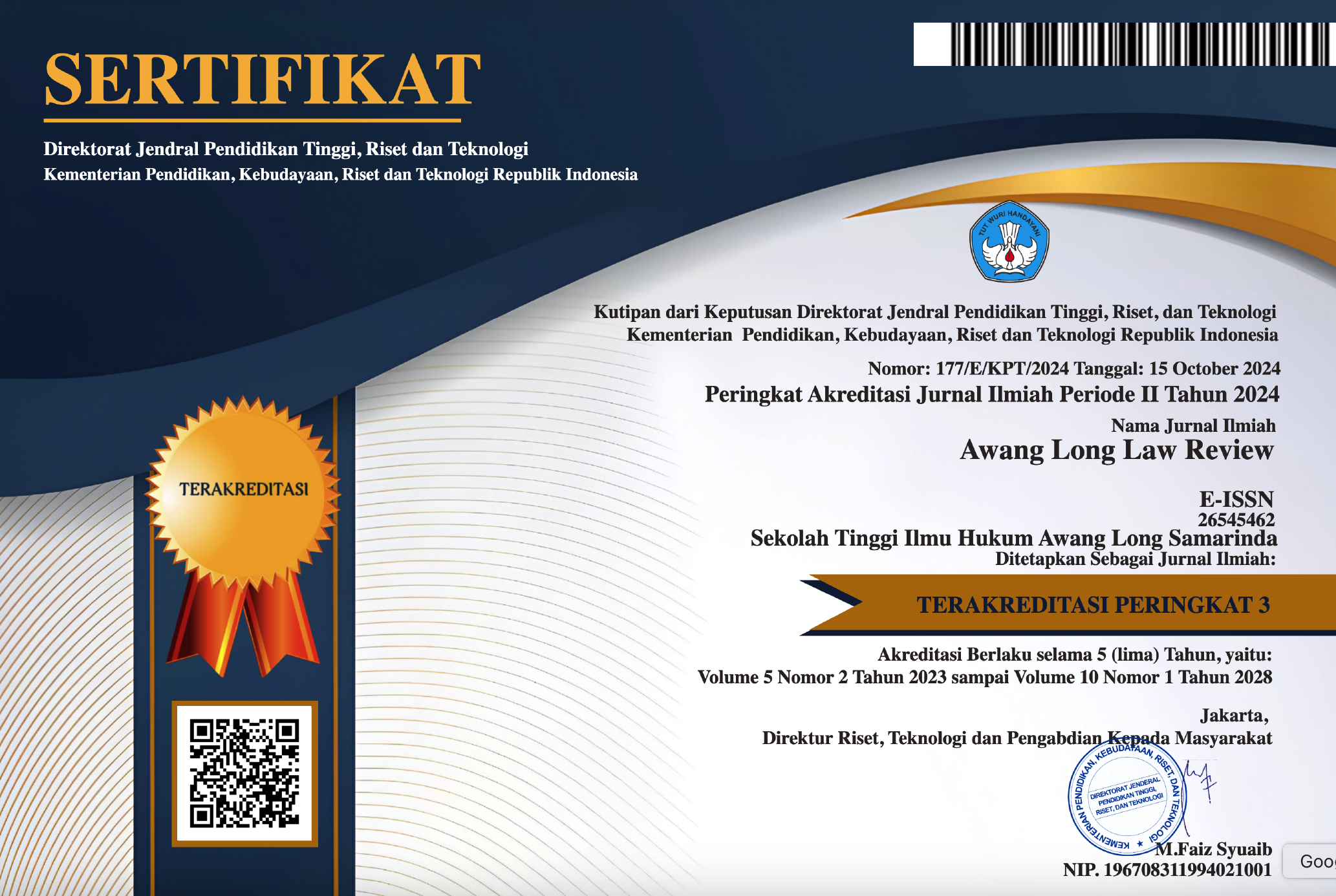JURIDICAL REVIEW REGARDING THE MAKING OF HALAL CERTIFICATION FOR MSMES IN SANGATTA CITY
Abstract
The majority of Indonesia's population is Muslim, so the halalness of a product is very important, especially for products that enter the body. Therefore, the Government, through several regulations, has implemented a policy, namely implementing mandatory halal certification for every MSME actor as stated in Article 2 paragraph (1) of Government Regulation no. 39 of 2021 concerning Implementation of Halal Product Guarantee Sector. However, there are many polemics among MSME players regarding halal certification, starting from limited knowledge regarding how to register, limited costs if it is necessary to register for halal certification, and also minimal outreach regarding the importance of halal certification for MSME players in Sangatta city . In order to overcome these obstacles, collaborative efforts are needed between the government, related institutions and MSME actors themselves. Concrete steps that can be taken include increasing outreach and education, providing cost subsidies, simplifying the certification process, strengthening coordination between related institutions. In this journal, it is appropriate to use normative methods with statutory and conceptual approaches. This halal certification has a very important role in increasing consumer confidence, product competitiveness and access to global markets.
Downloads
References
Akim, Akim, Neneng Konety, Chandra Purnama, and Leeja Citra Korina. (2019). The Shifting of Halal Certification System in Indonesia: From Society-Centric To State-Centric. MIMBAR: Journal of Social and Development 35 (1): 115–26.https://doi.org/10.29313/mimbar. v35i1.4223Puspita
Charity, May Lim. (2017). Halal Products Guarantee in Indonesia. Vol. 14, no. 01, 2017. Indonesian Legislation Journal 14 (01)
Government Regulation Number 69 of 1999 concerning Food Labels and Advertisements (State Gazette of the Republic of Indonesia of 1999 Number 131, Supplement to State Gazette of the Republic of Indonesia Number 3867)
Hadi Mustofa, B., & Luhur Prasetiyo. (2024). Business Development Strategy for Micro, Small, and Medium Enterprises (MSMEs) through Halal Certification in Ponorogo Regency. Istithmar, 7(2). https://doi.org/10.30762/istithmar.v7i2.716
Law Number 8 of 1999 concerning Consumer Protection (State Gazette of the Republic of Indonesia of 1999 Number 42, Supplement to State Gazette of the Republic of Indonesia Number 3821).
Law Number 18 of 2012 concerning Food. (State Gazette of the Republic of Indonesia 2012 Number 227, Supplement to the State Gazette of the Republic of Indonesia Number 5360).
Law Number 33 of 2014 concerning Halal Product Guarantees. (2014 State Gazette of the Republic of Indonesia Number 295, Supplement to the State Gazette of the Republic of Indonesia Number 5604)
Ningrum, RT (2022). Problems with the Obligation of Halal Certification for Micro and Small Enterprises (UMK) in Madiun Regency. Istithmar: Journal of Sharia Economic Studies, 6(1), 43–58. https://doi.org/10.30762/istithmar.v6i1.30
Pujiyanto, M. A., & Setyorini, F. A. (2024). Enhancing Awareness of the Importance of Halal Certification as a Strategy to Increase the Competitiveness of MSMEs in Banjarnegara Regency. Abdimas Awang Long, 7(1), 12-18
Sari, MK, & Sulistyowati, E. (2020). Legal Awareness of Micro, Small and Medium Enterprises Regarding Ownership of Halal Certificates for Processed Food Products. Novum : Law Journal, 7(1), 41.
Copyright (c) 2024 Atthyya Radhitya, Yuniarsih, Rizqi Amalia Azizah

This work is licensed under a Creative Commons Attribution-ShareAlike 4.0 International License.







